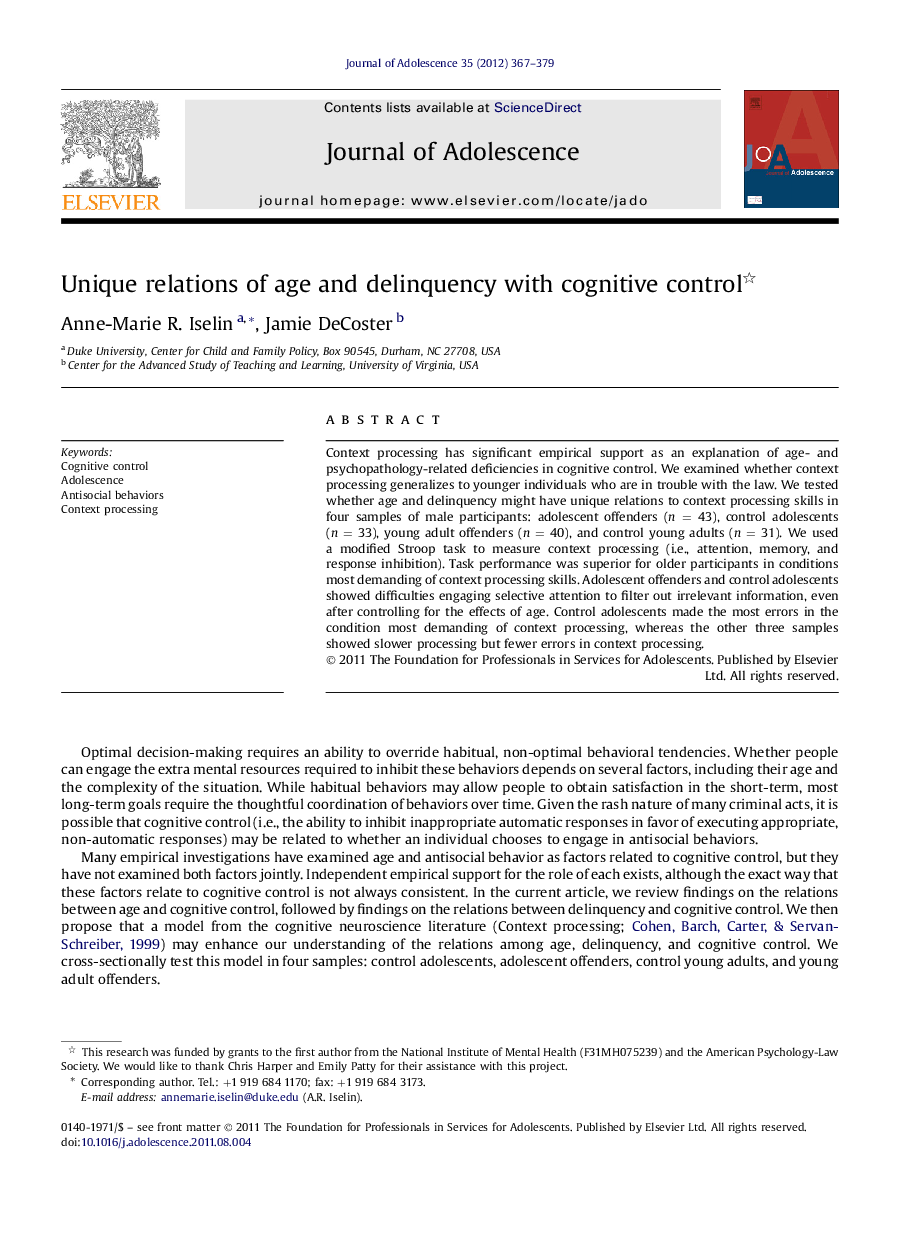| Article ID | Journal | Published Year | Pages | File Type |
|---|---|---|---|---|
| 881148 | Journal of Adolescence | 2012 | 13 Pages |
Context processing has significant empirical support as an explanation of age- and psychopathology-related deficiencies in cognitive control. We examined whether context processing generalizes to younger individuals who are in trouble with the law. We tested whether age and delinquency might have unique relations to context processing skills in four samples of male participants: adolescent offenders (n = 43), control adolescents (n = 33), young adult offenders (n = 40), and control young adults (n = 31). We used a modified Stroop task to measure context processing (i.e., attention, memory, and response inhibition). Task performance was superior for older participants in conditions most demanding of context processing skills. Adolescent offenders and control adolescents showed difficulties engaging selective attention to filter out irrelevant information, even after controlling for the effects of age. Control adolescents made the most errors in the condition most demanding of context processing, whereas the other three samples showed slower processing but fewer errors in context processing.
